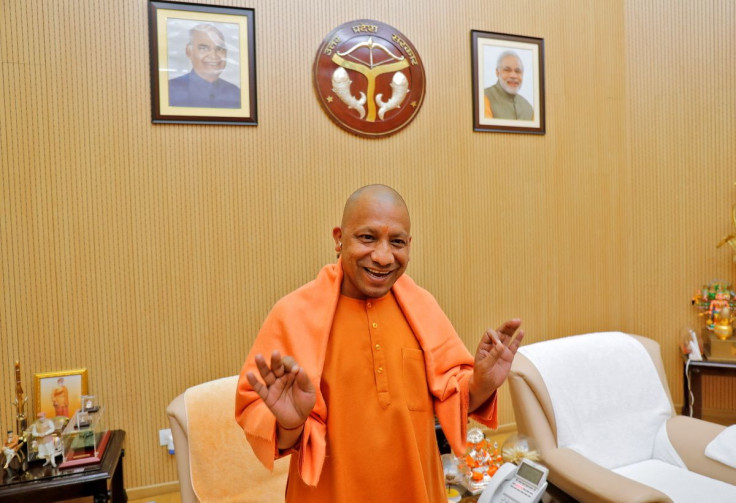Hindu Monk's Stock Rises As Ruling Party Set To Win Key Indian State Poll

Firebrand Hindu monk Yogi Adityanath's political stock is rising in India, where he is set to deliver the ruling party a thumping election win in the country's most populous state despite the pandemic and fury at farm reforms that were eventually ditched.
His performance in Uttar Pradesh, home to more than 220 million people and where he is chief minister, has reinforced the perception among some leaders of the nationalist Bharatiya Janata Party (BJP) and Hindu groups that support it that he could one day be prime minister.
The incumbent, Narendra Modi, is still hugely popular and looks set to win a third term in office when national elections come in 2024. But at 49, Hindu hardliner Adityanath is 22 years his junior, giving him time.
"The respect he commands is on a par with a federal cabinet minister now," said a member of the cabinet who declined to be named because he is not authorised to discuss internal discussions with the media.
The minister and another senior party official said that Adityanath's "clean image" in a country where many politicians are seen as tainted by graft is a major advantage over the longer term.
BJP spokespeople declined to comment on Adityanath's future.
Some political analysts, however, believe he is too divisive a figure for the top job.
Adityanath once ran a private Hindu militia, and his crackdown on crime, in which more than 150 alleged criminals and gangsters were killed in Uttar Pradesh during his first term, has drawn criticism while also appealing to many voters.
India's large Muslim minority also sees him as a poster boy for the BJP's Hindu-first agenda that has inflamed tensions between the two dominant religions. He denies being anti-Muslim.
"Modi is still the biggest brand on which people cast their vote," said Rajani Ranjan Jha, a retired professor of social sciences at the Banaras Hindu University in Uttar Pradesh.
He added that Adityanath would be an option as a prime ministerial candidate only if the BJP and the religious organisations around it wanted to "go aggressive".
HANDOUTS AND CRACKING DOWN ON CRIME
Adityanath's ability to deliver a big majority in Uttar Pradesh, where the large rural community was instrumental in resisting agricultural reforms through sometimes deadly street protests, has taken even some supporters by surprise.
The victory in a state seen as the bellwether of national politics came despite the state and federal government's much-criticised handling of COVID-19.
The BJP's coalition was leading in more than 250 of the 403 seats, media reported, while the Election Commission said the party was ahead in enough seats to hold power.
BJP leaders said the likely win was the result of free staples being handed out to the poor during the pandemic, a crackdown on crime and the popularity of Modi and Adityanath, especially among the Hindu majority.
Unemployment in Uttar Pradesh, currently at 2.7%, is also well below the national average of 8.3%, although the state has one of India's lowest labour participation rates, indicating that many people are not even looking for jobs.
Some BJP officials say the Uttar Pradesh results will go a long way to helping Modi in 2024, at the same time as burnishing Adityanath's credentials.
In an interview with Reuters before the state's seven-phase election began last month, Adityanath, wearing his trademark saffron cloak, deflected questions about his potential to succeed Modi, saying "I am just a monk."
"I will serve the people of the state till the party wants or else I will serve people through my ... temple," he said at his official residence in state capital Lucknow, referring to the temple in eastern Uttar Pradesh where he is head priest.
For some leaders of the Hindu Yuva Vahini - the Hindu Youth Force that Adityanath founded - he is the natural successor to Modi.
"He is the best man after the retirement of Prime Minister Narendra Modi to sit in that chair," said Pramod Kumar Mall.
(Writing by Krishna N. Das; Editing by Mike Collett-White)
© Copyright Thomson Reuters {{Year}}. All rights reserved.





















